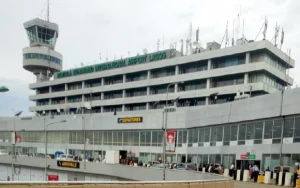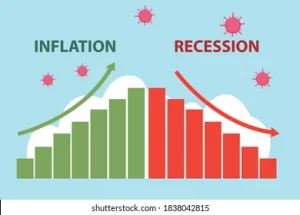
Concerned by the marginal 5.7 per cent growth witnessed in the nation’s stock market in 2021, compared to the 50.3 per cent rise achieved in 2020, investors have called for the implementation of appropriate legislation that would help tackle insecurity and other macroeconomic challenges challenging the capital market.
The stakeholders, said the key issues that could spur activities, stimulate investment and propel a boom in the market in the new year include downward review of the Monetary Policy Rate (MPR), policy stability, stable foreign exchange policy and implementation of appropriate legislation that will compel major enterprises to be listed to deepen the market.
At the close of trading last year, the all-share index which stood at 40,270.76 as of December 31, 2020, rose by 2,445.68 points or 5.7 per cent to 42,716.44 on December 31, 2021, while the market capitalisation of listed equities increased by 2.1 per cent to 22,296 trillion from 21.056 trillion achieved as at December 31, 2020.
Although the market closed upbeat at the end of 2021 trading, operators argued that the 5.7 per cent rise is insignificant, when compared to 50.3 per cent growth achieved in 2020.
From the negative return of 14.6 per cent in 2019, the all-share index (ASI), which stood at 26,842.07 basis points at the beginning of 2019 closed at 40, 270.76 points as of December 31, 2020. Similarly, market capitalisation increased by N8.098 trillion to N21.056 trillion from N12.958 trillion at which it opened for trading in 2019.
Reopening of the economy and borders fully, characterised by increasing crude oil price and increasing GDP growth rate made fundamentals of the capital market stronger in 2021.
But these were watered down by the pervasive insecurity that damaged the rural economy and shortage of forex, which affected the importation of raw materials needed for production.
Operators said that given the increasing level of insecurity, kidnapping, unemployment, weak naira and GDP growth, high inflation and dwindling revenues, the government has to evolve new strategies to tackle prevailing stock market volatility and stop investment outflows.
The latest data from the Nigerian Exchange Limited (NGX) showed that foreign investors pulled out a total of N173.32 billion from the Nigerian stock market from January to October.
The Nigerian Exchange Limited, in its domestic and foreign portfolio investment report, revealed that foreign investors injected N156.30 billion into the stock market in the 10 months.
Foreign portfolio investment (FPI) outflow includes sales transactions or liquidation of portfolio investments through the stock market while the FPI inflow includes transactions on the NGX (equities only), according to the bourse.
The outflow of capital has led to concerns about the impact on the economy, as operators predict the precarious capital market could worsen if factors impeding economic growth were not tackled soon.
Vice President, Highcap Securities Limited, David Adonri, said the capital market responds to macroeconomic conditions.
“If inflation declines, interest rate declines and GDP grows due to sound macroeconomic policies and safe operating environment, investors’ confidence will be enhanced and the capital market will boom naturally.
“A perennial challenge faced by the capital market is its shallowness. The government must be commended for facilitating the listing of MTN two years ago.
“Similar effort is needed to compel more major enterprises to be listed to deepen the market to integrate it further with the economy.”
According to him, after the expansionary monetary policy of H2, 2020 drove the yield on debt to low single-digit, yield started to rise from February 2021 causing financial assets to retreat to debt.
He said the yield on the 364 day Treasury bill was around 5.34 per cent and the 10-year bonds hovered around 12.5 per cent at the end of Q3 2021.
“With an attractive yield on bonds and impressive corporate fundamentals, the Secondary market from Q3 2021, fired on all cylinders, burning the candle from both ends.
“Despite the balanced and positive performance of the capital market in 2021, a ratio of equities market capitalisation to GDP was around 12.2 per cent, indicating that the capital market is not strongly integrated with the economy.
“Furthermore, the prevalent low-interest rate and high inflation environment in 2021 caused real return on equities to be -10.91 per cent and debt to be -10.65 per cent”, he added.
He stressed the need for government to government to articulate a policy directive that would cause the fixed-income yield to decline precipitously and offer some respite to the equities market
In addition, Adonri said there are worries that the capital market may suffer from the usual penultimate election-year syndrome in 2022.
He urged the government not to allow political activities to take precedence over governance and economic development in 2022 so that the operating environment will be conducive for enterprises and the capital market to flourish.
The President of the Standard Shareholders Association, Godwin Anono, said some government policies were unfriendly to the capital market in 2020.
According to him, the avalanche of taxes, levies and fees collected by the government and newly proposed ones are already choking the capital market.
“While FGN is attacking from one end, SEC is also mounting ferocious attacks from the other end with jumbo fees. If these assaults are not reversed, the capital market may die unceremoniously by 2022.
“Monetary policy is another area of concern. If it is still based on growth facilitation rather than price stability, the negative real returns on investment in 2021 may worsen in 2022 due to the anticipated inflationary impact of subsidy removal.
He insisted that monetary policy needs to always strike a balance between interest rate and inflation rate to ensure a balance between equities and debt.
President, Issuers and Investors Alternative Dispute Resolution Initiative (IIADRI), Moses Igbrude said rated stock market performance in 2021 low, stating that stocks prices were generally poor and extremely undervalued throughout the year.
According to him, many companies paid ‘mouth watery’ dividends especially the banks despite the harsh operating environment.
However, he stated that the improved dividend did not reflect on the share prices of these companies which had remained stagnant throughout the year.
He listed factors that have constituted disincentives to the stock market during the review period to include insecurity, port congestion, multiple taxation and parlous infrastructure.
Others are forex instability and persistent devaluation of the Naira which have triggered uncertainties and inability to do proper planning and reduction in purchasing power.
He said: “I am appealing to the Federal government to prioritise capital market issues because it is the barometer to measure the prosperity of any economy.
“Government should provide the necessary support through good policies that can impact the economy, enhance infrastructure development, improve power supply and eliminate port congestion by opening up other ports in other parts of the country.








